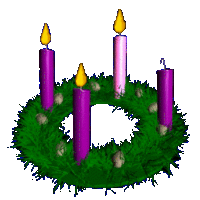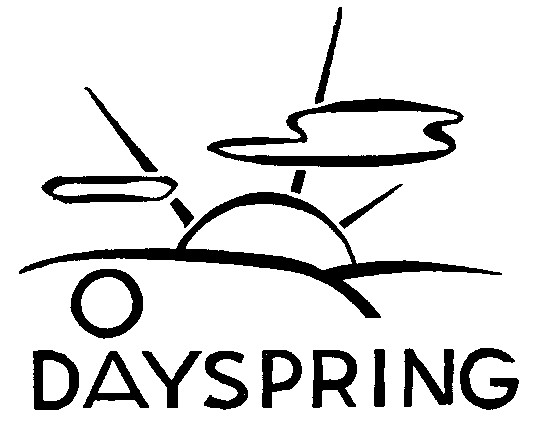From a reader:
Fr. Z, my dad has recently been ordained to the permanent diaconate;
however, he was never instructed in the Extraordinary Form. Are there detailed rubrics for the role of deacon in the EF, and where could I find them? My dad has a pastor who is willing to celebrate the Holy Sacrifice of the Mass in the Extraordinary Form.
Congratulations to your father.
 The role of deacon is, frankly, the most demanding of the three sacred ministers during a Solemn Mass. Having a live tutor will help for the trickier parts.
The role of deacon is, frankly, the most demanding of the three sacred ministers during a Solemn Mass. Having a live tutor will help for the trickier parts.
You can find fairly detailed descriptions of what deacons are to do during Solemn TLM’s in the reworking of Fortescue/O’Connells’ Ceremonies of the Roman Rite Described done by Alcuin Reid.
One of the best ways, however, would be to work with a priest or deacon, who himself as taken the role.
In the meantime, I would get busy learning to sing Gospel tones and making sure to know the different forms of the Ite for the end. The Ite is normally the same tone as the Kyrie at the beginning. And there is always the Exsultet if you need something to work on.
Another point I would think about ahead of time would be what to do with a biretta, putting it on the right way, getting used to taking it off before standing up, not sitting on it, that sort of thing. There are few sounds as disappointing as that crunching sound.
And avoid moving too stiffly or with too many sharp angles like a wind-up toy, or rushing around as if there were a fire … Vigil of Easter notwithstanding.

































Congratulations to you father. Has he looked at the site SanctaMissa.org? The Canons Regular of St. John Cantius, apart from their web based instruction, also offer classes and workshops. One of their Priests, Father Juncer, was for many years before his incardination and Priestly ordination, their Deacon and (I think) M.C.. He was a participant in Msgr. Slattery’s Mass in Washington. I’m sure he would have a great deal of empathy for your father’s wanting instruction.
How wonderful your father is able to look into this training. He could also look into the Chant Colloquium sponsored by CMAA/Musica Sacra, which will be at Dusquesne University in June. There is a track for priests/deacons/seminarians and there we permanent deacons there this past year.
Out of curiosity are there certain EF rubrics for deacons which might be easily utilized in the OF of the Roman Rite? Is this being done anywhere? Just curious…
Sancta Missa has all kinds of instructional stuff on their site, as well as numerous materials you can purchase. The instructional stuff looks as if it is very thorough. I bought one of their DVDs just so I would know what a Traditional Latin Mass looked and sounded like (at the time, I had never been to one nor seen one offered). The menu is in Latin, which is funny but a bit hard to navigate (though I did study two plus years of Latin). They are a great resource. If they don’t have anything for deacons, I’m sure they could steer the deacon in the right direction.
I would like to be a Deacon that serves in the EF.
Asked before, not answered yet: in the EF, could Subdeacons sing the Exsultet?
If you think the sound of a sat-up biretta is demoralizing, try sitting on a kamelavka!
Ed the Roman,
In the EF, no a subdeacon should not sing the Exultet.
In liturgy, the deacon plays the role of the herald, the messenger of good news. It is the role the angel plays in the story of the visit of the three women at the tomb of Jesus. The deacon, however, has to combine his liturgical role as a singer of the Exultet with his catechetical role. The great deeds of God he sings, have to be explained in the catechesis and linked to the daily lives of the faithful. Experience shows that these faithful wonder what is actually celebrated at Easter and what it has to do with them. Moreover, the language of the Exultet is not easily accessible.
This tradition existed already in the fourth century in northern Italy, where every year a deacon was commissioned to write a hymn and to also sing it at Easter Vigil. We know this thanks to a letter of Hieronymus in the year 384, in which he rejects the request of the deacon Praesidius from Piacenza to write a hymn for him. Hieronymus appeared to have a tense relationship with deacons. (courtesy of Roosendaal Group)
Indeed, Fr. Basil! They are never quite the same!
Deacons could also consider learning how to perform the role of subdeacon.
At our monthly Solemn Masses, we’ve had ordained deacons serving as deacon and subdeacon for the last year or so. Many times, ordained priests serve in all three roles.
Congratulations to the new deacon!
Great news.
I learned to minister as deacon and subdeacon in my first few months as a permanent deacon (and Reid/Fortescue/O’Connell is a Godsend).
Assisting at a Solemn Mass in the EF as a deacon has really added a dimension to my diaconal ministry. So much of the reflection on the ministry of the deacon is done in the light of protestant (and especially Lutheran) concepts of diakonia that pondering the ever-present role of the deacon in the usus antiqiour of the Latin Rite has been really helpful. In answer to the question: ‘What is a deacon for?’, this reflection on the liturgical function of the deacon in the EF and my experience in carrying out that ministry has led me to say that the ministry of the deacon (as Christ the Servant) is to serve the priest who (as Christ the High Priest) offers the one acceptable sacrifice to the Father for the salvation of the whole world. When I lift the hem of his alb, or remove the pall, or hold the base of the chalice at the offertory, I am serving the Alter Christus in order to make it ever so slightly easier for him to make that one sacrifice through which and whom we are redeemed. The sheer mundaneness and triviality, the smallness of the service that is required (in addition to the huge privilege of proclaiming the Gospel or dismissing the people) by service in the EF reminds me constantly of the little way of service. It is just so starkly before the deacon in the EF in a way that isn’t so obvious in the OF.
Trisagion: that is beautifully put and inspiring.
It is interesting to see how many permanent deacons really are interested in or have already taken part in the celebration of the Extraordinary Form